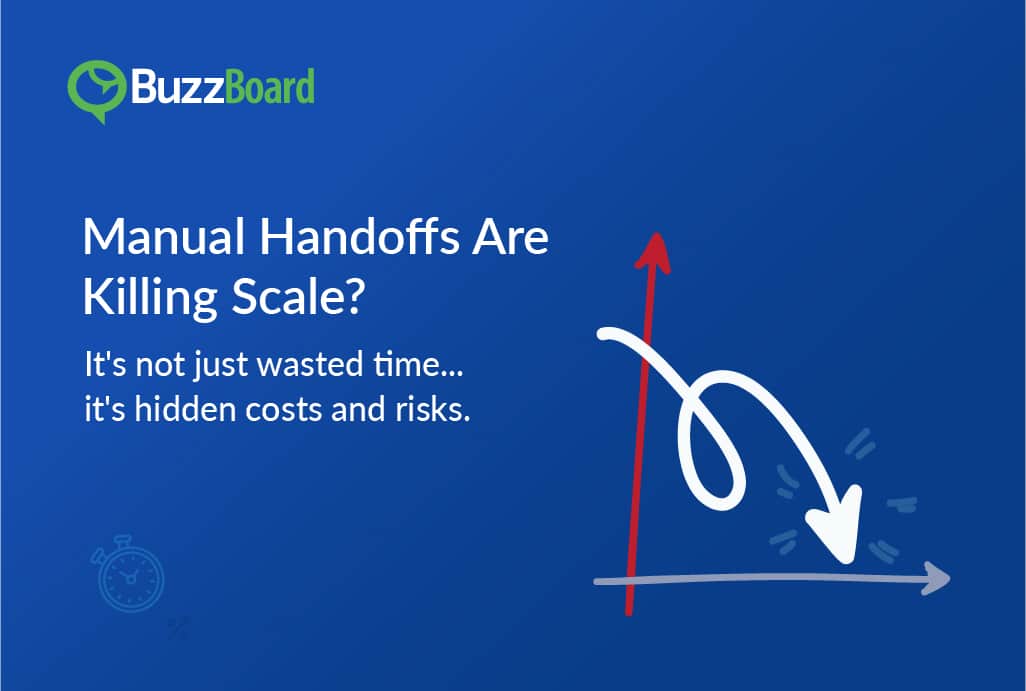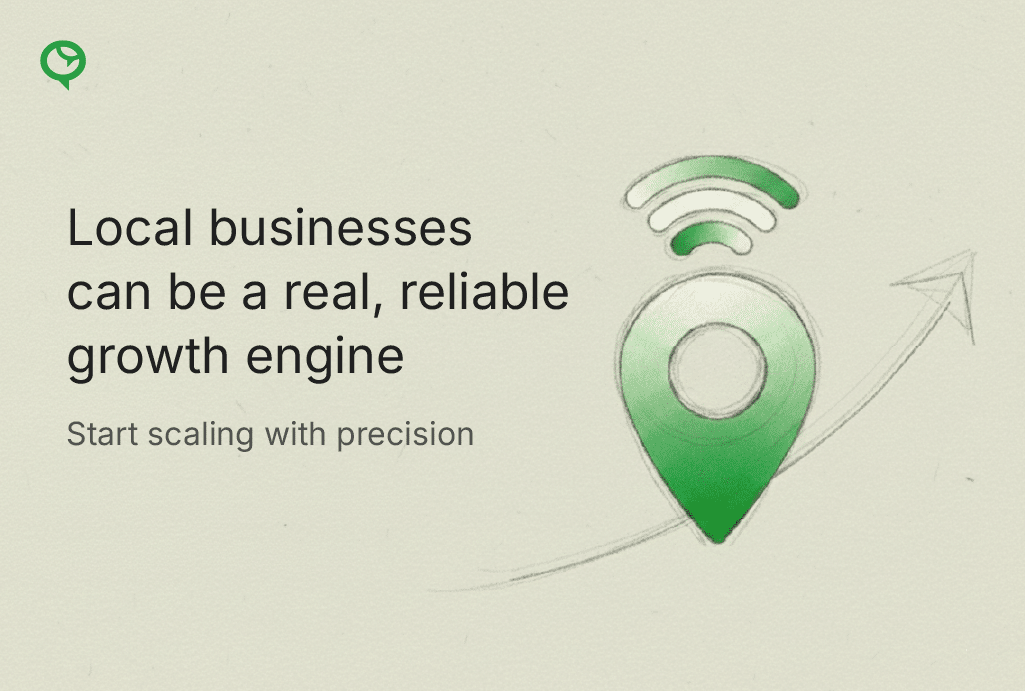Working with local businesses can be equally rewarding and, let’s be honest, a little wild. One minute you’re explaining the difference between SEO and SEM over coffee, and the next, you’re being asked if you can “just make it go viral.” But when it clicks — when you help a local business grow, thrive, and actually understand the value of digital marketing — it’s pure gold.
For agency owners and seasoned marketers like you, local businesses represent a high-potential, often-overlooked growth opportunity. But scaling your success in this space takes more than just great ads and keyword know-how. It takes the right systems, a smart approach to service delivery, and a deep understanding of what makes the local tick.
At BuzzBoard, we’ve seen how the right intelligence and orchestration systems can turn small wins into scalable momentum. Whether it’s automating discovery, streamlining fulfillment, or sustaining client engagement — smart systems make scaling human again.
In this blog, we’re diving into practical, proven strategies to not only grow your roster of local clients but keep them happy, successful, and sticking around for the long haul.
Ready to scale without burning out? Let’s dig in.
An overview of digital marketing strategies for local businesses
Achieving success in digital marketing with local businesses requires a meticulous approach that combines careful planning, precise execution, and a deep understanding of the unique dynamics that shape these enterprises. As marketing service professionals, it is essential to recognize the distinct challenges and opportunities that local businesses face and to develop customized strategies that address their specific needs and goals.
- Digital marketing is a multifaceted effort built on interconnected strategies aimed at specific goals. For local businesses, these goals can range from steady growth to staying digitally competitive. A well-defined marketing contract is key to achieving them — it outlines the scope, deliverables, and timeline, ensuring clarity and alignment between the business, the agency, and any partners. With a solid contract in place, everyone stays on the same page, reducing confusion, delays, and missed expectations.
- Local businesses are fundamentally different from large brands — they serve specific communities and face unique market dynamics. That’s why generic marketing strategies fall flat. Instead, success requires localized research, tailored messaging, and campaigns that resonate with the local audience. By focusing on community-driven content and targeted engagement, local businesses can build stronger connections, boost brand visibility, and drive meaningful results.
- In addition to being unique, it’s also important to stay competitive. Therefore, digital marketing strategies for local businesses need to be sustainable — ready to adapt quickly to shifting customer needs, trends, or competition.
- System over service. Move out of the ‘menu sprawl’ mindset. Build frameworks that can be reused, improved, and measured across campaigns and clients.
- Insight before execution. Local success is data-driven. The agencies that scale fastest are those that start with understanding — of audience, intent, and opportunity — before they act.
- Efficiency without detachment. Automate where you can, but keep your human touch. Local businesses still buy from people they trust.
- Transparency as retention. Every report, check-in, or insight shared is a chance to reinforce your value. (This is where tools like Ember turn proof of work into proof of worth.)
- Google Business Profile optimization (weekly posts, Q&A, review responses)
- Local citations (and cleaning up old junk data)
- Hyperlocal content (blogs, landing pages, community shout-outs)
- Reputation management (get those 5-star reviews flowing!)
- Onboarding sequences (client portals and welcome emails)
- Monthly reporting (automated but readable)
- Review generation workflows
- A pre-call form to collect logins, goals, and business info
- A kickoff meeting template (with agenda and slides)
- A welcome email sequence with timelines and FAQs
- A shared project dashboard (Asana, ClickUp, Trello, etc.)
- Client onboarding checklist (internal + client-facing)
- Go beyond dashboards — tell a story with your data. Dashboards are table stakes; clients remember the story behind the metrics. Use visual summaries that highlight growth narratives, not just numbers.
- Automate consistency, personalize delivery. Set up automated report delivery but wrap it in a human context — a short Loom, voice note, or headline summary that connects the dots between action and outcome.
- Include a “What’s Working / What’s Next” section. This helps you frame progress and future priorities as a shared roadmap. Momentum is easier to sustain when everyone sees the next move together.
- Track form fills, phone calls, and foot traffic
- Use call tracking and UTM-tagged URLs
- Translate metrics into business outcomes ("We brought in 23 qualified leads this month" > "Your CPC is down 13.4%")
- Google reviews (with timing and templates that make it easy)
- Testimonials (especially video, if they’re brave)
- Case studies (frame them as a win for them, too)
- Monthly email updates with wins, trends, and quick tips
- Loom videos walking through reports (more personal, less confusing)
- uarterly strategy sessions to revisit goals and reframe priorities
- They want a miracle, not a marketing plan
- They ghost you after onboarding
- They think "boosting a post" is marketing
Laying the foundations for scalable success
Scaling digital marketing success with local businesses isn’t about adding more services or chasing every new channel — it’s about building repeatable systems around clarity, insight, and connection.
Before we dive into the playbook for scaling and sustaining success, it’s worth grounding in the mindset that separates growing agencies from those that stall out:
These foundations set the stage for the practical systems that make growth sustainable — the day-to-day game that builds trust, scales performance, and strengthens your agency’s local impact.
The practical agency game to scale and sustain success with local clients
With these foundations that set the premise of your digital marketing agency’s success journey in the local market, it’s time we run you through the subtle dynamics behind earning trust and driving results with small, local businesses.
1. Standardize your services
Local businesses don’t need custom code or 20-page brand guides. They need results. Fast. To scale, you need to productize your core offerings—think SEO packages, PPC ad bundles, or local listing optimization tiers. This reduces time spent reinventing the wheel for each new client while keeping your team efficient.
Pro tip: Bundle services that naturally go together (like GMB optimization + local link-building). Sell them as results-driven outcomes, not a list of tactics.
2. Dial in your local SEO playbook
Local SEO is as much about credibility as it is about visibility. A well-optimized local presence signals that your agency practices what it preaches, earns trust before the first pitch, and turns credibility into a quiet but constant client magnet. Therefore, your local SEO playbook should include:
Bonus move: Build niche authority by focusing on specific verticals, like dentists, plumbers, or law firms. This makes your pitch stronger and your SEO repeatable.
3. Leverage automations without losing the human touch
What really determines whether your agency can scale with local businesses is your back-end. That invisible engine of onboarding workflows, task templates, automations, and reporting systems. That’s the difference between an agency that grows steadily—and one that explodes, then implodes. Indeed, a few well-placed automations can free up time and improve client experience. Set up:
Caution: Not everything needs a manual touch. But then again, automation is a tool, not a substitute. Local clients still value relationships. Automation saves hours and reduces human error, but it should enhance, not replace, the relationship.
4. Build a strong onboarding framework
A chaotic onboarding process sets the tone for a chaotic relationship. A clear, automated, and humanized onboarding workflow helps clients feel confident and keeps your team on track.
What your onboarding system should include:
Consider recording a 5-minute clip walking the client through “what to expect” in the first 30 days. It reduces confusion and shows professionalism from the start.
5. Streamline reporting and communication
Client trust erodes when they feel they are in the dark. Regular, simple, and visual reporting builds transparency and repeat business. But the best agencies don’t just report data — they turn it into dialogue.
Reporting best practices:
When reports evolve from data dumps into narratives of progress and partnership, they become moments of alignment — not obligation. That’s exactly what BuzzBoard Ember enables — intelligent, branded artifacts that turn routine reporting into trust-building communication.
With automated monthly progress reports, strategy guides, and growth benchmarking, your agency can show proof of impact, identify new opportunities, and start renewal conversations before the contract clock even ticks down.
6. Get obsessed with ROI and help clients see it
Local business owners don’t care about CTR or impression share. They care about calls, bookings, and steady customer flow. Make your reporting hyper-relevant:
Money talk: When clients can tie your efforts to revenue, retention becomes a lot easier, and referrals start rolling in.
7. Build systems for referrals and case studies
Your happy clients are sitting on marketing gold; you just need a system to mine it. Ask for:
Word travels: In the local biz world, reputation still reigns supreme. A few strategic testimonials can do more than a cold call ever could.
8. Invest in client education
Your clients don’t need a masterclass in GA4, but a little education goes a long way. Offer:
When clients understand what you do and also why it works, they’ll be far less likely to bounce when someone offers “SEO for $99/mo.”
9. Know when to say no
Not every local business is ready to scale with you. Watch for red flags:
Your time is precious. Scaling means spending it where it counts. The faster you qualify (or disqualify), the faster you grow with clients who get it.
Local clients bring quirks, curveballs, and coffee shop meetings that run over. But they also bring loyalty, word-of-mouth gold, and real impact you can see on the corner of Main Street. Scaling your marketing service business in this space is a relationship-driven game where your systems, empathy, and strategic sharpness all collide. So, build smart systems, tighten your service delivery, and speak the language of business results, not just metrics.
When you combine operational efficiency with high-touch service, you're not just growing — you’re building an agency that local businesses want to stick with. One that gets them, guides them, and grows with them.
Because at the end of the day, making a local business feel seen, supported, and successful…? That’s not just good marketing. That’s good business.

